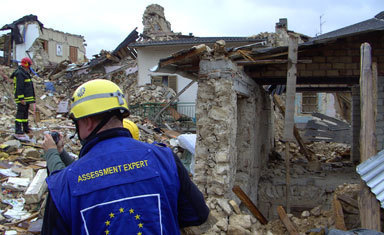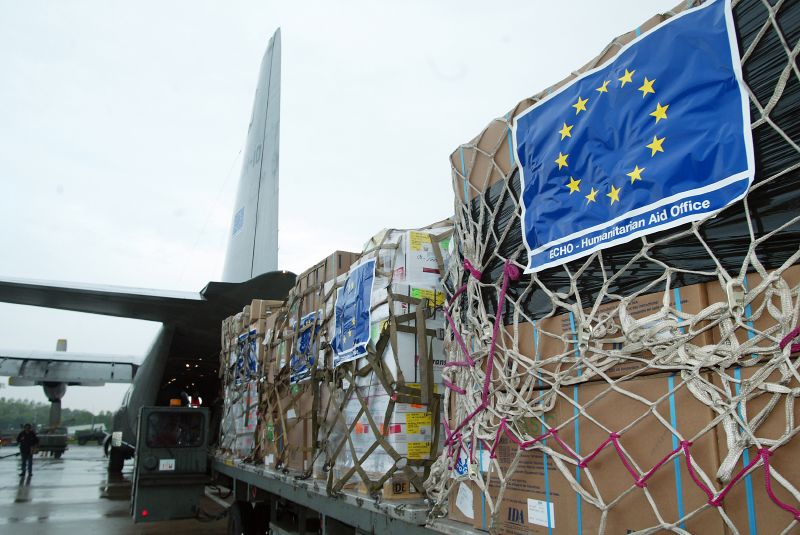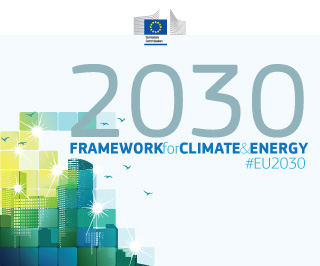Introduction
The European Union plays important roles in diplomacy, trade, development aid and work with global organisations. Currently, the European External Action Service (EEAS) is the EU’s primary organisation in charge of diplomacy, foreign affairs and external relations of the 28 member states. The Treaty of Lisbon, which was signed in 2007 and entered into force in late 2009, established the EEAS. One of the key tasks of the EEAS is to ensure that all the different activities that the EU performs abroad are consistent and effective. The EEAS has its headquarters in Brussels and operates 140 delegations around the world, of course including Hong Kong!

Here are some examples of the roles the European Union plays beyond its borders:
Contributor to peace
The EU provides political, practical and economic support towards building peace in areas of conflict around the world. For example, in the Western Balkans since the Yugoslav wars, the dialogue facilitated by the European Union between Serbia and Kosovo led to a landmark deal in April 2013. The EU has also put in considerable efforts in resolving the Arab-Israeli conflict, by working together with international partners – the United Nations, the United States and Russia – in the so-called ‘Quartet’. It also advocates disarmament and the non-proliferation of weapons, along with creating mechanisms such as the “Instrument for Stability”. More recently, its work in attempting to bring solutions, peace-building and mediation to the Syrian civil war, the Ukrainian crisis and the Islamic State threats have been crucial as a key international actor. For the international recognition of EU’s work towards contributing to world peace, the EU received the Nobel Peace Prize in 2012.

–

A responsible neighbour
To the east and south of the European Union, there are many countries which have undergone – or are still undergoing – tumultuous political change. The European Neighbourhood Policy aims to maintain solid and friendly relations with countries at the European Union’s borders. Promoting democracy and human rights while opening trade and cooperating on visa issues are some of the Policy’s aims.

Development partner
Did you know that the EU is the largest single donor of development aid? Together, the Union and its Member States provide more than half of official development assistance (ODA) globally. This contribution makes a huge difference to millions of people’s livelihoods around the world.

Human rights defender
The EU commits itself firmly to human rights and works to ensure they are respected universally. The EU has made human rights a central aspect of its foreign relations and expresses this focus in political dialogues with third countries, in its development policy and aid, and in its participation in multilateral forums, such as the United Nations.

Partner to the United Nations
The EU works closely with the United Nations on a host of issues. The EU believes in multilateralism which reflects an attachment to negotiated, binding rules in international relations.

Force for global security
Under the Common Security and Defence Policy (CSDP), the EU operates civilian and military missions worldwide. These missions carry out a variety of tasks, ranging from managing borders to training local police. The Operation EUNAVFOR Atalanta off the coast of Somalia, for example, tackles piracy and protects humanitarian shipments of the World Food Programme.

–

Crisis Response & Humanitarian Aid
The EU and the Member States provide around 50 % of global funding for emergency relief. This provides life-saving aid to the victims of disasters, refugees and others in dire need. The European Union responds in a coordinated way to international emergencies of all kinds – earthquakes in Haiti, tsunamis in Japan or flooding in Pakistan. This brings together all the tools the European Union has at its disposal.


Advocate of action on climate change
The EU was instrumental in negotiating the Kyoto Protocol on climate change and is today a major supporter of the UN’s effort to create an international climate agreement cutting emissions and limiting global warming. Its key 2020 strategy aiming to reduce CO2 emissions by 20% across its member states, and the recent 2030 framework targeting a 40% cut of CO2 by 2030, set important foundations and example for global change. For developing countries, the EU provides substantial development funding to help them face climate change.

Trading bloc
The European Union is the world’s largest trading bloc. Trade is a common policy, which means that international trade agreements are negotiated and signed by the Union rather than by individual Member States. This allows the EU to speak with a single voice with international partners as it works to promote a free and fairer international trading system.

An expanding union
The EU currently has 28 Members. Since 1957, when the EU’s forerunner formed with six countries, the Union has expanded significantly, with the greatest jumps occurring after the fall of communism in Central and Eastern Europe in 1989-1991. The attraction of EU membership and the political and economic stability it brings has meant that many countries aspire to join – although they must first pass tough EU membership tests, including on democracy and the rule of law.

Tackling global challenges
Much of the EU’s work with international partners is focused on tackling the challenges facing Europe as well as the rest of the world. It is clear that problems as diverse as climate change, terrorism, drugs and energy security have the potential to pose a threat across the world. Other areas include the fight against piracy, conflict diamonds, drugs terrorism, mine action, energy, trade – bilateral relations, migration, humanitarian aid, development, education, health and so on.


